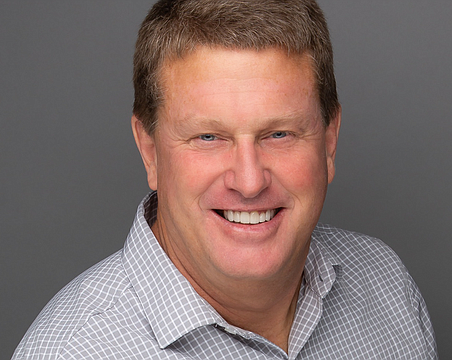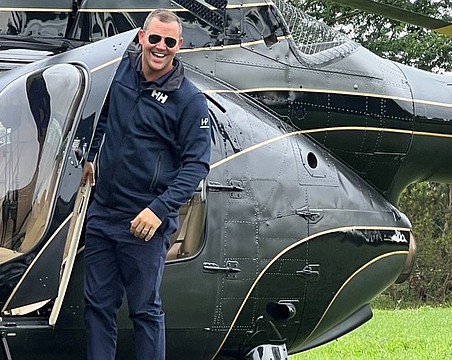WCI Battles Icahn
companies by Jean Gruss | Editor/Lee-Collier
A lesson in corporate self-defense: How the board of directors and management of WCI Communities jousted with billionaire investor Carl IcaAhn. So far, the company has held its ground.
On Dec. 11, Don Ackerman got a phone call no corporate chieftain wants to receive.
Carl Icahn was on the line, demanding to know what the chairman of WCI Communities was going to do about the company's sagging stock price.
Icahn's call to Ackerman set off alarm bells at the headquarters of the Bonita Springs-based homebuilder. The New York billionaire is feared for targeting underperforming companies and demanding management and strategic change to boost share price. The message was clear: Everyone's job is on the line.
Icahn's call shouldn't have been surprising. Just three weeks earlier, on Nov. 14, the corporate raider disclosed a 4% stake in the company, sending WCI's stock price soaring 13% in a single day.
That call was the beginning of a corporate game of chess between Icahn and WCI's board and management whose outcome will only become clear later this summer. Icahn has presented a new slate of directors to replace the current board, setting up a pivotal shareholders meeting June 15.
From Dec. 11 to Feb. 22, top WCI executives and board members held a series of 10 discussions with Icahn, securities filings reveal. They provide a behind-the-scenes glimpse at the battle between private equity investors and corporate boards of struggling companies such as WCI.
'Let them hang out for a year'
On that first call, Ackerman gave Icahn the company line: WCI planned to increase liquidity to pay down its towering debt by collecting on $1 billion for new condominiums it had contracted to sell during the boom years.
That wasn't what Icahn wanted to hear. He boosted his stake in WCI to 15%, warning WCI President and Chief Executive Officer Jerry Starkey in advance with a phone call on Jan. 12.
Seeing that Icahn made good on his word he was going to boost his stake, the board of WCI hastily arranged a telephone conference call Jan. 22 to figure out what to do.
The plan was to mount a full defense and retain the big guns of Wall Street, including investment-banking powerhouse Goldman, Sachs and corporate-law experts at Simpson Thatcher & Bartlett to advise them.
Two days later, on Jan. 24, Ackerman, Starkey and WCI Vice Chairman Charles Cobb met with Icahn in person and discussions took a more serious tone. Icahn said he wanted to buy up to 49.9% of WCI's shares and agreed to sign a pledge that he wouldn't launch a proxy fight or make an unsolicited bid for the whole company. (Cobb is a shareholder and former director of The Observer Group Inc., owner of the Gulf Coast Business Review.)
But in return, Icahn asked that WCI's board waive a corporate-law provision that would let him negotiate transactions with other parties without the requirement that he obtain approval from two-thirds of the company's shareholders. A waiver could pave the road for a merger with a rival homebuilder or a deal with an Icahn-controlled entity, WCI executives feared.
At a board meeting on Jan. 30, WCI directors rejected Icahn's waiver request and created another line of defense. They adopted a poison-pill provision that would automatically dilute the shares of anyone who acquired more than 15% of the company.
After the board meeting, Ackerman, Cobb, Starkey and Steve Zenker, WCI's vice president of investor and corporate communication, called Icahn and told him they could not agree to granting him a waiver. However, they agreed to give him a seat on the board if he signed a "standstill agreement" promising not to launch a tender offer or proxy fight until the 2008 annual meeting.
The next day, Jan. 31, Icahn said he might agree to the standstill agreement, but requested two seats on the board and a waiver of the poison-pill provision so he could acquire up to 20% of the company.
On Feb. 1, Ackerman called Icahn to tell him the company's board was prepared to let him buy up to 20% of the shares without triggering the poison pill, give him one seat on the board and offer a second seat to an undisclosed major shareholder. In return, Ackerman asked that Icahn sign a standstill agreement until the 2008 annual meeting.
Icahn stood his ground. He would sign a standstill agreement only if WCI let him negotiate a separate deal without the approval of two-thirds of shareholders. Otherwise, he warned Ackerman to be ready for a proxy fight and a tender offer. Minority shareholders, Icahn said, could "hang out for a year."
Calling Icahn's bluff
By Feb. 8, it was becoming clear that if WCI's board carried on business as usual, Icahn's takeover might be successful. So the board put the "For Sale" sign up, issuing a news release announcing WCI had retained Goldman Sachs to evaluate "financial, strategic and operational alternatives." That's a fancy way of saying the board was shopping the company around.
On Feb. 12, Icahn called Ackerman to warn him in advance that he planned to nominate a slate of 10 new directors for election at the June 15 annual meeting.
With that call, Icahn gave Ackerman and the WCI board another opportunity to waive the corporate rule that would let him negotiate with third parties. He also demanded the poison-pill provision be waived to allow anyone to acquire up to 30% of the company's shares without the threat of dilution.
But the negotiations with Icahn broke down.
Four days later, Icahn nominated a slate of directors that includes Sarasota developer Hugh Culverhouse Jr. That same day, the board issued a news release accusing Icahn's move of being "highly disruptive and not in the best interests of all the company's shareholders."
About one month later, on March 23, Icahn launched his tender offer for the shares he didn't already own for $789 million.
But on May 18 at midnight, Icahn's offer expired. "I hope for the stockholders' sake that WCI has a bid for the company better than $22 a share or else it was reprehensible to take away this opportunity from them," Icahn says in a statement. "Should WCI fail to achieve such a price, we hope that stockholders will support our proxy fight to unseat the current board of directors."
WCI Communities
vs. Carl Icahn
Nov. 14: Carl Icahn acquires a 4% stake in WCI. Shares rise 13%.
Dec. 11: Icahn calls WCI Chairman Don Ackerman to determine what he plans to do to boost WCI's share price.
Jan. 16: Icahn boosts his stake in WCI to 14.57%.
Jan. 24: Ackerman, Starkey and WCI Vice Chairman Charles Cobb meet face-to-face with Icahn, who tells them he wants to buy nearly half the company.
Feb. 7: Negotiations effectively end after WCI's board refuses to grant Icahn more control.
Feb. 12: WCI announces it has hired Goldman, Sachs to sell the company.
Feb. 16: Icahn proposes a new slate of 10 directors, including Sarasota developer Hugh Culverhouse Jr., to be elected at the company's annual meeting on June 15.
March 23: Icahn offers $22 a share for the stock of WCI he doesn't already own for $789 million and sets a May 18 deadline.
April 5: WCI's board rejects Icahn's offer, labeling it "conditional, opportunistic and inadequate." It urges shareholders not to tender their shares.
May 16: WCI urges shareholders to reject Icahn's offer and tells them a better offer could emerge from ongoing discussions with undisclosed buyers.
May 18: Icahn's $22 a share tender expires.
June 15: WCI annual meeting.
REVIEW SUMMARY
Company. WCI Communities
Trend. Private equity investors target undervalued companies
Key. Corporate self-defense involves hiring the best advisors.





